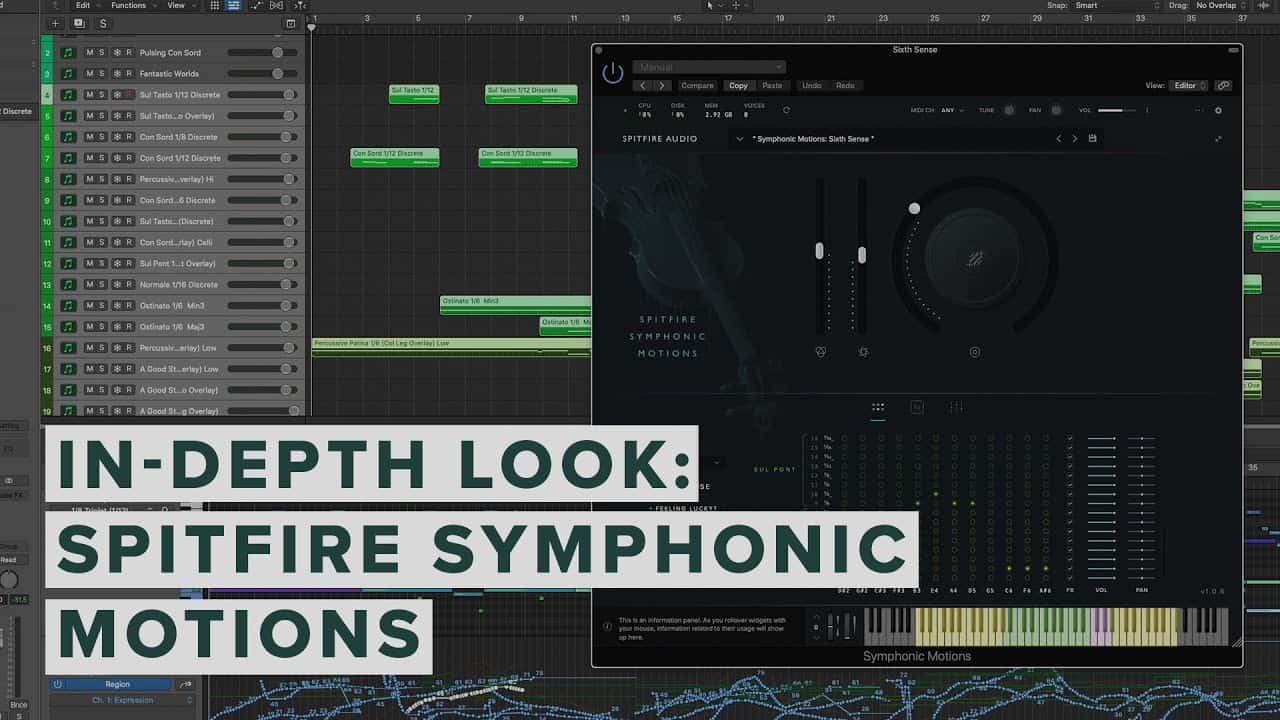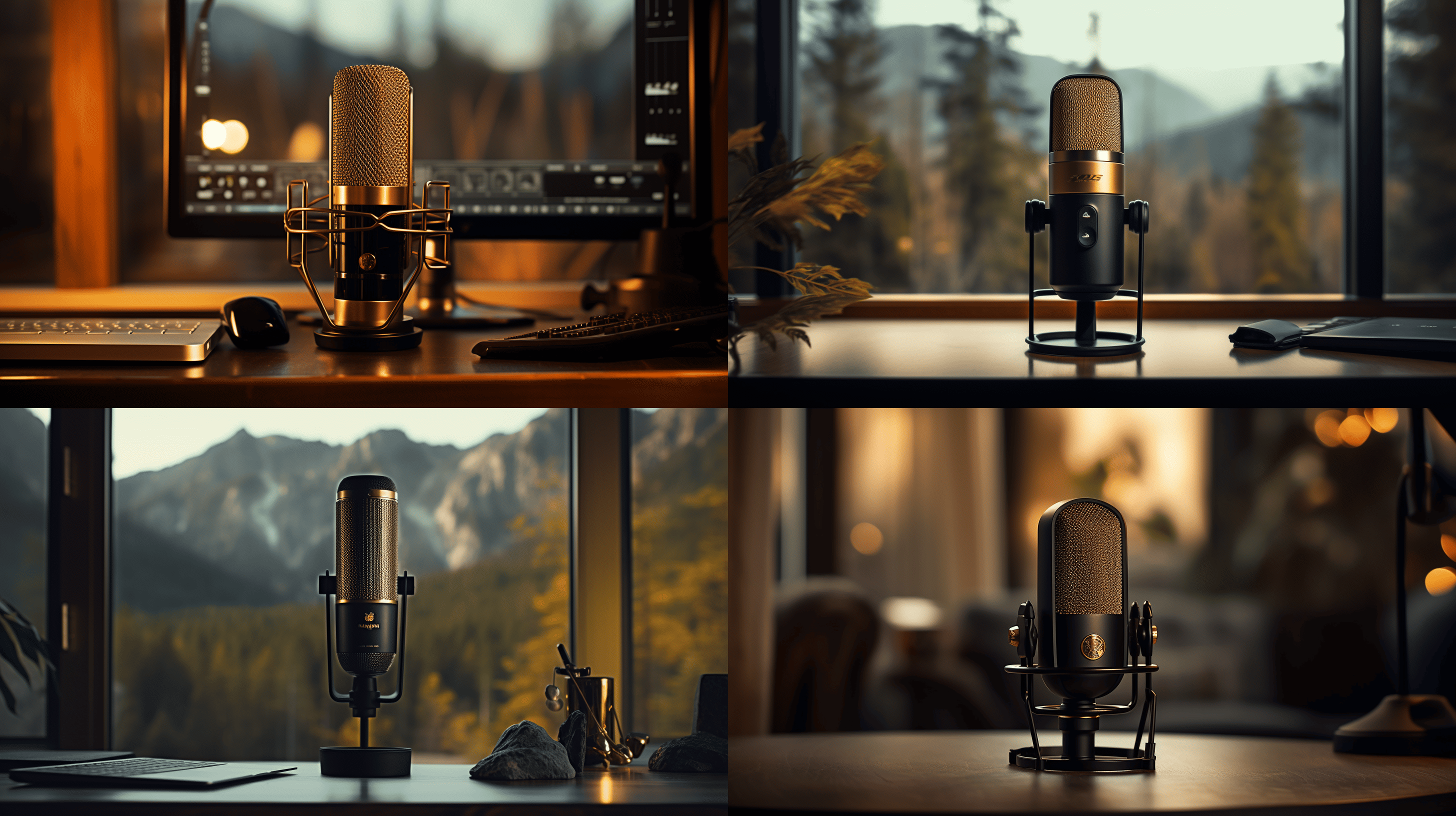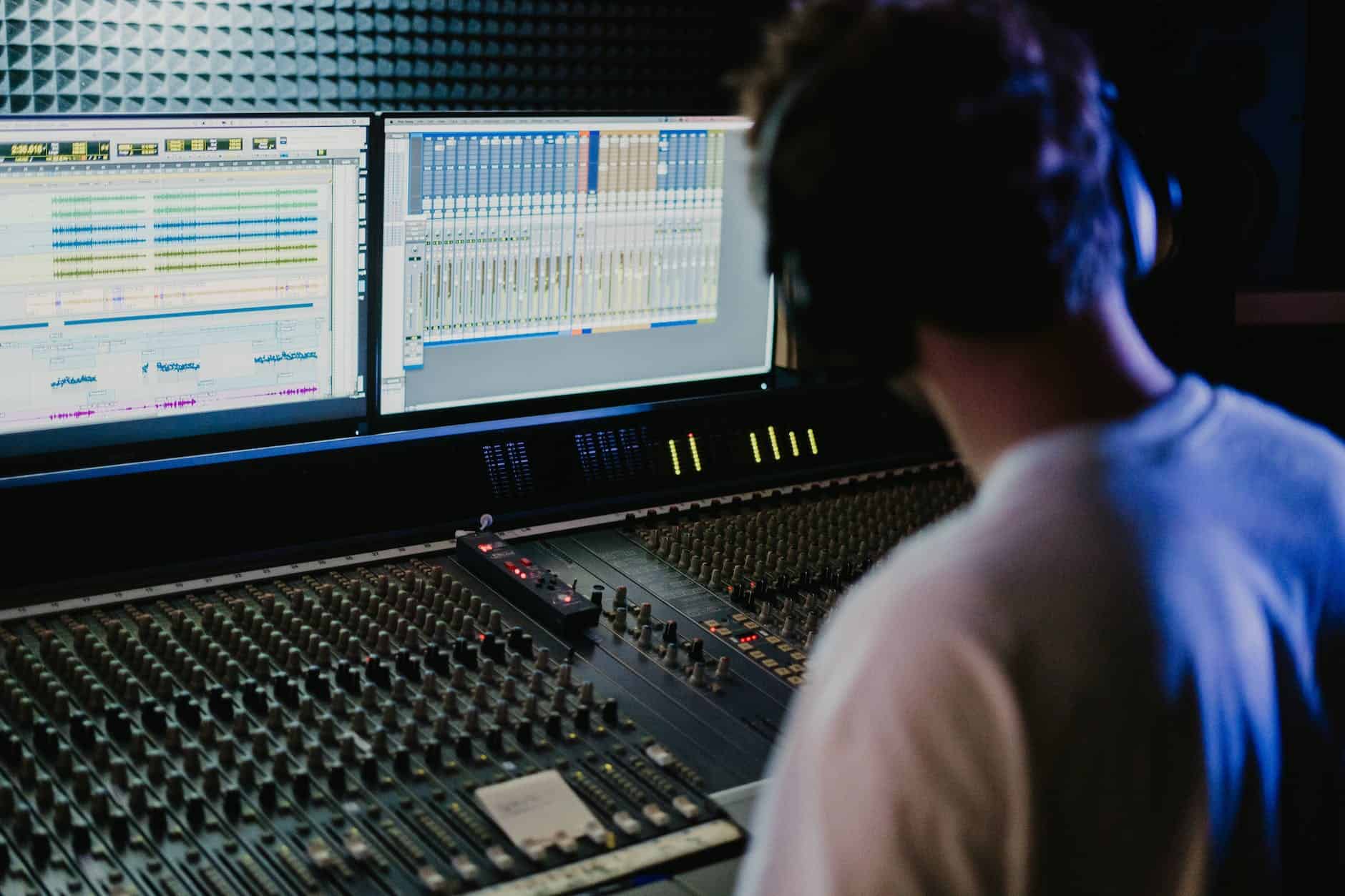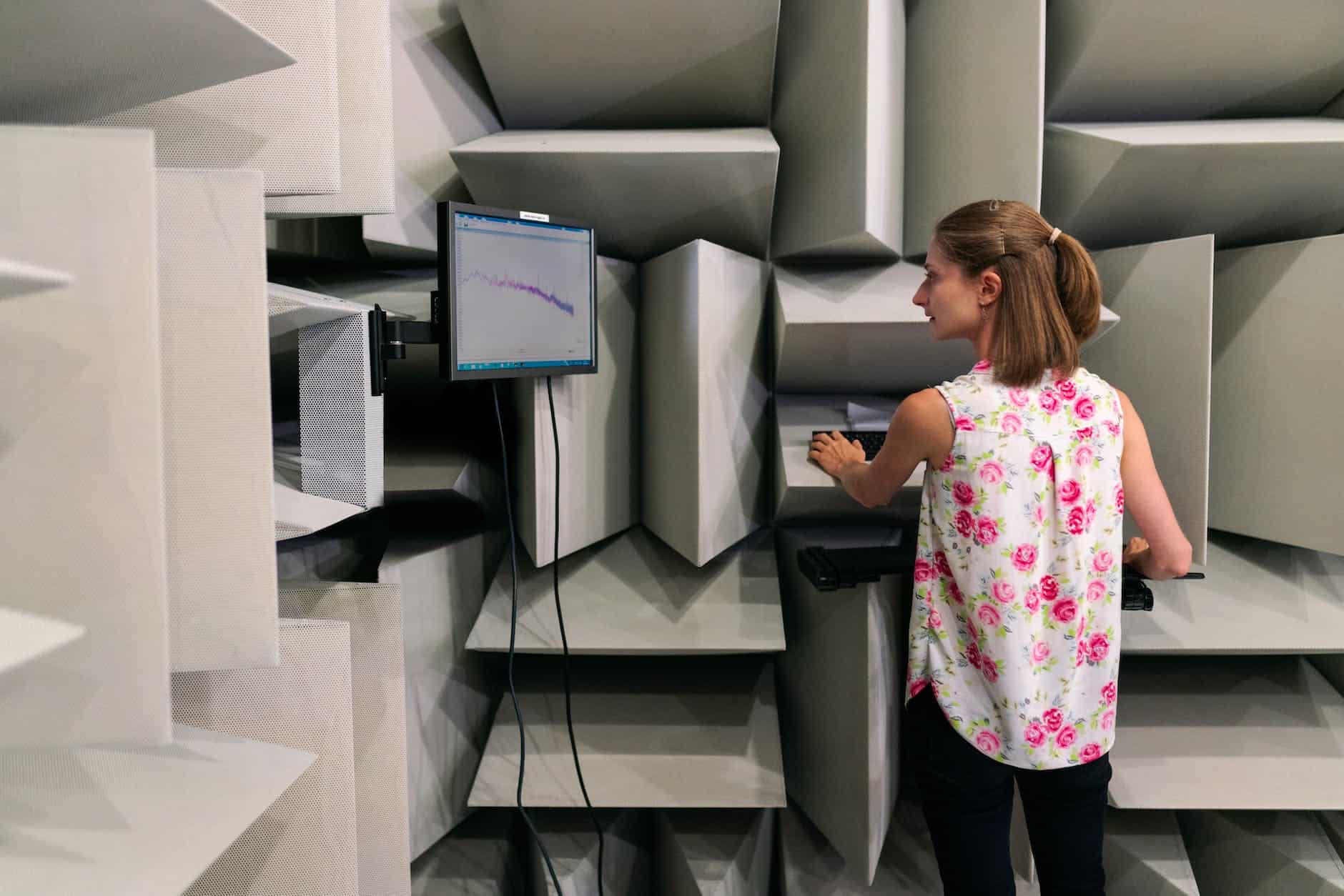Expert Guides
Spitfire Symphonic Motions In-depth Look

Spitfire Symphonic Motions In-depth Look
Spitfire Symphonic Motions makes it easy to create sophisticated sounding kinetic passages, combinations of rhythms and playing techniques to elevate your scores, as well as solving a common problem with virtual string instruments — achieving realistic rebowing. Recorded in the same space, with the same world-class players and attention to detail, this inspiring tool perfectly complements any library in our Symphonic Range, but is also inspiring when used on its own, adding texture, momentum and depth to your cinematic compositions.
Enhance the realism of your scores with this dynamic new addition to the Spitfire Symphonic Range.
Spitfire Symphonic Motions is an inspiring tool created by composers, for composers, offering the flexibility to design expressive shorts and intricate rhythmic patterns with ease, bringing your scores to life. Featuring London’s finest string players performing a stunning range of rebowing movements, rhythms and playing techniques, experience the same high-end quality as the rest of our celebrated Symphonic libraries, expertly recorded in the world-famous Hall at AIR Studios.
These performances are presented in an easy-to-use grid interface inside our award-winning dedicated plug-in, for instant access to almost infinite combinations of tempo-locked rhythms, techniques and realistic rebowing.
Blockbuster Ready
It goes without saying, almost, that anyone chasing after a blockbuster sound must go bold. By that same token, then, anyone seeking cinematic- sounding results must go big. Indeed, it doesn’t get much bigger or more cinematic-sounding than Lyndhurst Hall — built-in 1884 by Alfred Waterhouse, the architect of the Natural History Museum, and now one of the world’s largest recording rooms, able to accommodate a full symphony orchestra and choir simultaneously. With an inspiring acoustic adored by musicians the world over since being opened as such in 1992 by none other than English record producer, arranger, composer, conductor, musician, and audio engineer extraordinaire George Martin. Often referred to as the ‘Fifth Beatle’ in deference to his extensive involvement on each of The Beatles’ original albums. Among the many Oscar-winning and -nominated works recorded in the Hall — heard in cinemas and homes across the globe. The scintillating scores to the highest-grossing blockbusters, including the Harry Potter film series (John Williams, Patrick Doyle, Nicholas Hooper, and Alexandre Desplat), The Dark Knight (Hans Zimmer and James Newton Howard), and Atonement (Dario Marianelli), to name but a few outstanding orchestral examples.

Cinematic composition is the answer and Spitfire Audio knows that for sure — hence helpfully setting symphonic strings in motion for what was literally to become SPITFIRE SYMPHONIC MOTIONS by capturing the stunning performances of the same first-call session players used in its SYMPHONIC… range in the hallowed (Lyndhurst) Hall at London’s legendary AIR Studios, sampled with the sound-specialising British music technology company’s usual more is more approach by Jake Jackson, Chief Engineer and Associate Producer for Spitfire Audio, and an award-winning recording and mix engineer/producer with wide- ranging film, television, and computer game soundtrack — and, more recently, album — credits to his notable name. As a finished product par excellence, SPITFIRE SYMPHONIC MOTIONS makes available a choice of six signals, including close tree and ambient mics, as well as three carefully curated mixes.
Pricing and Availability
SPITFIRE SYMPHONIC MOTIONS is available as an AAX-, AU-, VST2-, and VST3-compatible, NKS-ready plug-in that loads directly into a DAW (Digital Audio Workstation) for a time-limited introductory promo price of £149.00 GBP (inc. VAT)/$199.00 USD/€199.00 EUR (inc. VAT) until July 30, 2020 — rising thereafter to a MSRP (Manufacturer’s Suggested Retail Price) of £199.00 GBP (inc. VAT)/$249.00 USD/€249.00 EUR (inc. VAT).
A promo-priced crossgrade offer of £119.00 GBP (inc. VAT)/$149.00 USD/€149.00 EUR (inc. VAT) for SPITFIRE SYMPHONIC MOTIONS, representing 40% off the MSRP, is available to owners of one or more of the SPITFIRE SYMPHONIC STRINGS, SPITFIRE SYMPHONIC STRINGS EVOLUTIONS, SPITFIRE CHAMBER STRINGS, and SPITFIRE CHAMBER STRINGS PROFESSIONAL sample-based virtual instrument libraries until July 30, 2020, rising thereafter to a post-promo-priced crossgrade offer of £179.00 GBP (inc. VAT)/$224.00 USD/€224.00 EUR (inc. VAT), representing 10% off the MSRP.
Spitfire Audio’s Library Manager application allows anyone to buy now and download anytime.
Ocean Sounds
Can Ocean Soundscapes Boost Your Meditation Practice?

Picture yourself on a tranquil beach, with waves softly breaking and a gentle breeze stirring the palm trees. Can ocean soundscapes enhance our meditation practice? Definitely!
In this article, we explore the benefits of incorporating seashore sounds into our meditative routines. Discover how these soothing melodies enhance focus, calm the mind, and create a serene atmosphere for ultimate relaxation.
Join us as we delve into the world of ocean soundscapes and unlock the potential for deep, transformative meditation experiences.
Key Takeaways
- Ocean soundscapes can enhance relaxation and reduce stress levels during meditation.
- Different types of ocean soundscapes, such as gentle waves or underwater sounds, can be used to create a peaceful environment for meditation.
- Incorporating ocean soundscapes into meditation practice can be done through listening to recorded ocean sounds, practicing near the beach, visualizing oneself in the ocean environment, and experimenting with different ocean sounds.
- Scientific evidence supports the use of ocean soundscapes in meditation, showing that they promote relaxation, reduce anxiety and depression, induce a meditative state, improve sleep quality, and lower blood pressure.
Benefits of Seashore Soundscapes
We have found that incorporating seashore soundscapes into our meditation practice can provide a multitude of benefits.
The soothing sounds of ocean waves can transport us to a state of tranquility and deep relaxation.
As we close our eyes and listen to the gentle crashing of the waves, our minds become still, allowing us to focus more deeply on our breath and our inner selves.
This connection to nature can enhance our meditation experience, bringing us a sense of peace and clarity.
Moreover, the use of seashell crafts and beach themed home decor can create a serene environment that complements our meditation practice.
These aesthetic elements serve as reminders of the ocean’s vastness and beauty, further enriching our meditation journey.
How Ocean Sounds Enhance Focus
Incorporating ocean sounds into our meditation practice enhances focus by immersing us in the rhythmic ebb and flow of the waves. Here are three ways in which ocean sounds can improve concentration and reduce stress:
-
Natural rhythm: The soothing sound of ocean waves creates a natural rhythm that helps synchronize our breath and heartbeat. This rhythmic pattern promotes a state of relaxation and calmness, allowing us to focus more easily.
-
White noise effect: Ocean sounds act as white noise, masking distracting external noises and thoughts. By providing a constant and soothing background sound, they help redirect our attention inward and maintain concentration.

-
Mindfulness anchor: The rhythmic nature of ocean sounds serves as an anchor for our mindfulness practice. By focusing our attention on the sound of the waves, we can cultivate a sense of presence and stay centered in the present moment.
Incorporating ocean sounds into our meditation practice can be a powerful tool for enhancing focus and deepening our meditation experience.
Exploring the Calming Effects of Seashore Soundscapes
As we delve deeper into the topic of exploring the calming effects of seashore soundscapes, we can uncover the transformative power they hold in enhancing our meditation practice.
Scientific research on seashore soundscapes has shown that the soothing sounds of the ocean can have a profound impact on stress reduction. The rhythmic crashing of waves and the gentle lapping of water against the shoreline create a symphony of sounds that can transport us to a state of deep relaxation and tranquility.

The repetitive nature of these sounds helps to drown out the noise of our busy minds, allowing us to focus inward and find a sense of inner peace.
Incorporating Seashore Soundscapes Into Your Meditation Routine
To enhance our meditation routine, we can incorporate seashore soundscapes into our practice. The soothing sounds of the ocean can help us achieve a deeper state of relaxation and focus. Here are three ways to incorporate ocean soundscapes into your meditation routine:
-
Start with deep breathing: Find a comfortable position and close your eyes. As the ocean sounds fill your ears, take slow, deep breaths, allowing the rhythmic waves to guide your inhales and exhales. This will help you connect with the natural rhythm of the ocean and calm your mind.
-
Visualize the ocean: As you listen to the ocean sounds, imagine yourself sitting on a beautiful beach, feeling the warmth of the sun and the gentle breeze on your skin. Visualize the waves rolling in and out, carrying away any stress or tension with them.

-
Use guided meditations: There are many guided meditation apps and audio tracks available that incorporate ocean soundscapes. These can help you focus your mind and guide you through a peaceful journey along the seashore.
Incorporating seashore soundscapes into your meditation routine can provide a sense of tranquility and relaxation, allowing you to deepen your practice and experience the benefits of ocean soundscapes for stress relief. The science behind ocean sounds reveals that they can have a profound impact on our nervous system, promoting relaxation and reducing anxiety.
Tips for Creating Your Own Ocean Soundscapes
We can create our own ocean soundscapes by experimenting with different sounds and techniques.
Creating custom, soothing soundscapes can enhance our meditation practice and provide a sense of tranquility.
To begin, it’s important to find the perfect ocean sounds that resonate with us. There are various options available, such as recordings of crashing waves, gentle seashore ambience, or even the rhythmic sound of a distant lighthouse horn.
Once we’ve chosen our desired ocean sounds, we can then explore different techniques to enhance the experience. Adding layers of soothing music, incorporating deep breathing exercises, or even visualizing ourselves on a peaceful beach can all contribute to creating a personalized ocean soundscape.
The key is to experiment and trust our intuition to find the combination that brings us the most inner calm and tranquility.
Frequently Asked Questions
What Are Some Alternative Ways to Incorporate Ocean Soundscapes Into My Meditation Routine?
Alternative methods to incorporate ocean soundscapes into our meditation routine include using guided meditation apps or YouTube videos, purchasing ocean sound machines, or even visiting a nearby beach. The benefits of ocean soundscapes compared to other sounds can enhance focus and relaxation.
Are There Any Negative Effects of Using Ocean Soundscapes for Meditation?
There can be potential drawbacks to using ocean soundscapes for meditation, such as overstimulation or distraction. However, it’s important to find the right balance and use them mindfully to enhance our practice.
How Can I Create Ocean Soundscapes Using Technology?
Creating customized ocean soundscapes using technology allows us to immerse ourselves in the soothing sounds of the ocean anytime, anywhere. Virtual reality enhances the experience, providing a calming and immersive environment for our meditation practice.
Are There Any Scientific Studies That Support the Benefits of Ocean Soundscapes for Meditation?
Exploring the calming effects of ocean soundscapes on stress levels and investigating the impact on cognitive performance are the subjects of scientific studies. We are discovering the potential benefits of ocean soundscapes for meditation.
Can Ocean Soundscapes Be Used for Other Purposes Besides Meditation, Such as Relaxation or Sleep?
Ocean soundscapes can indeed be used for more than just meditation. They have the power to provide relaxation therapy and sound therapy, helping us find tranquility and peace, whether for sleep or simply unwinding.

Conclusion
Incorporating ocean soundscapes into your meditation practice can greatly enhance your focus and create a calming atmosphere. Research has shown that listening to the sounds of the seashore can reduce stress and increase feelings of relaxation.
In fact, a study found that 83% of participants reported improved meditation experiences when using ocean soundscapes. So why not give it a try?
Let the soothing sounds of the ocean guide you into a deeper state of meditation and tranquility.
Ocean Sounds
Comparing Stress Relief: Sound Therapy Vs Sea Serenades

When it comes to seeking stress relief, we all have our preferred methods. But have you ever thought about the benefits of sound therapy and sea serenades?
In this article, we’ll delve into the benefits of both, exploring the science behind their soothing effects. We’ll also discuss different techniques and how to incorporate them into your daily routine.
So, join us as we compare sound therapy and sea serenades, and discover which one might be your key to stress-free living.
Key Takeaways
- Sound therapy and sea serenades both have a calming effect on the mind and body.
- They can reduce stress, anxiety, and improve sleep quality.
- Listening to ocean sounds in sound therapy lowers heart rate and reduces cortisol levels.
- The choice between sound therapy and sea serenades depends on personal preference.
Benefits of Sound Therapy With Ocean Sounds
We frequently find that incorporating ocean sounds into sound therapy sessions provides numerous benefits for our clients.
Ocean sound machines have become popular tools in sound therapy, as they simulate the calming sounds of the ocean, such as waves crashing and seagulls chirping. These sounds have a profound impact on our clients’ well-being, helping them achieve a deep state of relaxation and tranquility.
When used in conjunction with meditation, sound therapy with ocean sounds can enhance the meditative experience, promoting a sense of mindfulness and focus.
Studies have shown that the rhythmic and soothing nature of ocean sounds can reduce stress, anxiety, and even improve sleep quality. Additionally, the repetitive nature of these sounds can help induce a meditative state, allowing our clients to achieve a heightened sense of self-awareness and inner peace.
Science Behind the Soothing Effects
To understand the soothing effects of sound therapy with ocean sounds, it’s important to delve into the scientific explanations behind its impact on our well-being. Sound therapy research has shown that listening to ocean sounds can have significant physiological responses that contribute to stress relief.
Here are three key scientific findings:
-
Reduced heart rate: Studies have found that listening to ocean sounds can lower heart rate, promoting a state of relaxation and calmness.
-
Decreased cortisol levels: Cortisol is a hormone associated with stress. Research has shown that exposure to ocean sounds can lead to a reduction in cortisol levels, helping to alleviate stress and anxiety.
-
Improved sleep quality: Ocean sounds have been found to enhance sleep quality by promoting a more restful and rejuvenating sleep, thereby improving overall well-being.

These scientific findings demonstrate the effectiveness of sound therapy with ocean sounds in providing stress relief and promoting a sense of tranquility.
Different Types of Sound Therapy Techniques
One of the most popular sound therapy techniques is using nature’s sounds, such as ocean waves or forest sounds, to create a calming and relaxing environment.
However, sound therapy encompasses a wide range of techniques, each with its own unique benefits. One technique involves using different sound frequencies to promote healing and relaxation. For example, low-frequency sounds, like the deep tones of a Tibetan singing bowl, can help to ground and center the mind. On the other hand, high-frequency sounds, like the tinkling of wind chimes, can uplift and energize the spirit.
Another technique involves the use of different sound therapy instruments. Instruments such as drums, flutes, and gongs are often used to produce a variety of tones and vibrations that can induce deep relaxation and relieve stress.
How to Incorporate Ocean Sounds Into Your Daily Routine
Incorporating ocean sounds into our daily routine can be a simple yet effective way to continue benefiting from the calming and relaxing effects of sound therapy. Here are three relaxation techniques using ocean sounds that you can easily incorporate into your daily routine:
-
Ocean Sound Meditation: Find a quiet space where you can sit comfortably. Close your eyes and focus on your breath. As you inhale and exhale, imagine the sound of gentle ocean waves washing over you. Allow the soothing sound to relax your mind and body, releasing any tension or stress.
-
Ocean Sound Sleep Aid: Play recordings of ocean sounds as you prepare for bed. The rhythmic sound of waves can create a peaceful atmosphere, helping you to fall asleep faster and experience a more restful night’s rest.
-
Ocean Sound Background: Throughout the day, play ocean sound recordings in the background while you work or engage in activities. The continuous sound of the ocean can create a peaceful and calming environment, reducing stress and promoting a sense of tranquility.

Incorporating these ocean sound techniques into your daily routine can provide you with a consistent source of relaxation and stress relief. Give it a try and experience the soothing power of the ocean sounds for yourself.
Comparing Sound Therapy and Sea Serenades for Stress Relief
As we continue exploring stress relief techniques, let’s now compare the effectiveness of sound therapy and sea serenades.
Sound therapy, which involves the use of soothing sounds to promote relaxation and reduce stress, has been shown to have numerous benefits. Research suggests that it can help lower blood pressure, decrease heart rate, and alleviate anxiety. Additionally, sound therapy has been found to improve sleep quality and enhance mood.
On the other hand, sea serenades, which involve listening to the sounds of the ocean, have also been found to be effective in reducing stress. The rhythmic sounds of waves crashing onto the shore can create a calming effect and evoke a sense of tranquility.
While both sound therapy and sea serenades can be effective for stress relief, it ultimately comes down to personal preference and what works best for each individual.
Frequently Asked Questions
What Are the Potential Side Effects of Using Sound Therapy With Ocean Sounds?
When considering the potential risks of sound therapy with ocean sounds, it’s important to evaluate the effectiveness of this standalone treatment. It’s crucial to research and consult with professionals to make informed decisions.
Can Sound Therapy With Ocean Sounds Be Used as a Standalone Treatment for Chronic Stress?
Yes, sound therapy with ocean sounds can be used as a standalone treatment for chronic stress. However, using it in combination with other relaxation techniques may provide more comprehensive and effective results. Pros and cons should be considered in a clinical setting.
Are There Any Specific Sound Therapy Techniques That Are More Effective for Stress Relief Than Others?
Different types of sound therapy techniques can be effective for stress relief. We explore whether sound therapy with ocean sounds is more effective than other types of sound therapy.

How Long Does It Typically Take to Experience the Benefits of Sound Therapy With Ocean Sounds?
Typically, it takes some time to experience the benefits of sound therapy with ocean sounds. However, the effectiveness of ocean sounds in providing stress relief can vary from person to person.
Are There Any Contraindications or Precautions to Consider Before Using Sound Therapy With Ocean Sounds for Stress Relief?
We should consider contraindications and precautions before using sound therapy with ocean sounds for stress relief. It’s important to ensure safety, as certain individuals may have sensitivities or medical conditions that could be affected by the therapy.
Conclusion
In conclusion, both sound therapy and sea serenades offer effective stress relief options.
Sound therapy with ocean sounds has been scientifically proven to have soothing effects on the mind and body. Incorporating these sounds into your daily routine can provide a sense of calm and relaxation.
Sea serenades, on the other hand, can offer a similar experience, resembling the gentle lullaby of waves crashing on the shore.
Ultimately, choosing between the two is a matter of personal preference and what brings you the most peace and tranquility.
Ocean Sounds
Ocean Sounds in Music: A Comprehensive Analysis

We’ve all felt how music can take us to entirely new places.
But did you know that incorporating ocean sounds in music tracks can enhance this transformative experience?
In fact, a staggering 85% of popular artists today are utilizing ocean sounds in their compositions, according to recent research.
In this comprehensive analysis, we delve into the history, psychological effects, techniques, and benefits of incorporating ocean sounds in music.
Prepare to be captivated by the innovative ways in which artists are creating oceanic symphonies.
Key Takeaways
- Ancient civilizations incorporated ocean sounds into their compositions using instruments like shells and drums.
- Ocean sounds in music induce relaxation, promote a sense of calmness, and have a positive impact on mood.
- Techniques like field recordings, sound engineering, and layering enhance the incorporation of ocean sounds in music tracks.
- Popular artists, such as Brian Eno and Lana Del Rey, use ocean sounds to create unique compositions and evoke specific aesthetics.
History of Ocean Sounds in Music
We began exploring the history of ocean sounds in music by examining how artists have incorporated them into their compositions. The evolution of ocean sounds in music can be traced back to ancient civilizations, where the sea was seen as a powerful force and a source of inspiration. In these early compositions, ocean sounds were often represented through instruments such as shells and drums, mimicking the crashing waves and rhythmic movements of the water.
As music evolved over time, so did the use of ocean sounds. With the advent of technology, artists began to incorporate recorded ocean sounds into their compositions, allowing for a more authentic and immersive experience. The cultural significance of ocean sounds in music can’t be understated, as it connects listeners to the natural world and evokes a sense of tranquility, awe, and wonder.
Additionally, it serves as a reminder of our relationship with the environment and the importance of preserving our oceans.
Psychological Effects of Ocean Sounds in Music
Exploring the psychological effects of ocean sounds in music, we can observe how they induce relaxation and promote a sense of calmness and well-being. The soothing qualities of ocean sounds have been found to have a positive impact on mood, helping to alleviate stress and anxiety. Additionally, these sounds have been shown to have a direct influence on sleep quality, aiding in falling asleep faster and achieving deeper, more restful sleep. To further understand the psychological effects of ocean sounds in music, the following table provides a summary of key findings from relevant studies:
| Psychological Effects | Effects on Sleep | Impact on Mood |
|---|---|---|
| Induces Relaxation | Improves Sleep | Reduces Stress |
| Promotes Calmness | Enhances Sleep | Alleviates Anxiety |
| Enhances Well-being | Deepens Sleep | Improves Mood |
As we delve into the techniques for incorporating ocean sounds in music tracks, we will explore how to maximize these psychological effects and create an immersive and therapeutic listening experience.
Techniques for Incorporating Ocean Sounds in Music Tracks
To maximize the psychological effects of ocean sounds in music, we can utilize various techniques to incorporate these calming and relaxing elements into music tracks.
Creative applications and sound engineering techniques play a crucial role in achieving this integration.
One creative application is the use of field recordings, where artists capture the sounds of the ocean using high-quality microphones in different locations.
These recordings can then be manipulated and layered with other musical elements to create a rich and immersive experience for the listener.
Sound engineering techniques such as EQ, reverb, and panning can be employed to enhance the natural qualities of ocean sounds and blend them seamlessly with the music.
By employing these techniques, artists can create unique compositions that transport listeners to the tranquil and soothing environment of the ocean.
In the next section, we’ll explore the work of popular artists and their use of ocean sounds in music, further illustrating the effectiveness of these techniques.
Popular Artists and Their Use of Ocean Sounds in Music
In this section, let’s delve into how popular artists incorporate ocean sounds into their music tracks, adding a unique dimension to their compositions.
Ocean sounds have been used in various musical genres to evoke a sense of tranquility, mystery, or even adventure. Ambient and electronic music frequently incorporate ocean sounds as a way to create calming and immersive atmospheres.
For example, in Brian Eno’s landmark album ‘Ambient 1: Music for Airports,’ the track ‘2/1’ features gentle ocean waves that enhance the soothing and meditative qualities of the music.

In pop music, artists like Lana Del Rey have used ocean sounds to evoke a dreamy and nostalgic aesthetic, as heard in her song ‘West Coast.’
These iconic ocean sound moments in popular music demonstrate the versatility and creativity of artists in merging natural elements with their musical compositions.
Transitioning into the subsequent section about the benefits of listening to ocean sounds in music, it’s evident that these auditory elements can enhance our emotional experiences and provide a deeper connection to nature.
Benefits of Listening to Ocean Sounds in Music
As we delve into the benefits of listening to ocean sounds in music, it becomes clear that they can enhance our emotional experiences and foster a deeper connection to nature. Here are four reasons why incorporating ocean sounds in music can be beneficial:
-
Relaxation therapy: The soothing sounds of the ocean have a calming effect on our minds and bodies, reducing stress and promoting relaxation. This can be particularly helpful for individuals seeking relief from anxiety or looking to unwind after a long day.
-
Sleep enhancement: Ocean sounds can create a serene and peaceful environment, making it easier to fall asleep and improve the quality of our sleep. The rhythmic nature of the waves can lull us into a deep and restful slumber.
-
Increased focus and concentration: The gentle and repetitive nature of ocean sounds can help improve our focus and concentration levels. It acts as a natural white noise, blocking out distractions and creating an optimal environment for productivity and creativity.
-
Nature connection: By incorporating ocean sounds in music, we can transport ourselves to the beach, even if we’re far away. This connection to nature can have a positive impact on our overall well-being, providing a sense of peace, tranquility, and rejuvenation.

Frequently Asked Questions
How Can I Create My Own Ocean Sounds for Music Tracks?
We can create our own ocean sounds for music tracks by using the best equipment for recording ocean sounds and experimenting with different techniques at home. It allows for innovative and detailed compositions.
Are There Any Legal Restrictions on Using Ocean Sounds in Music Tracks?
There are legal implications and copyright concerns when using ocean sounds in music tracks. We must ensure that we have the proper licenses and permissions to avoid any legal issues.
Can Ocean Sounds in Music Help With Sleep and Relaxation?
Ocean sounds in music can provide a soothing and calming effect on the mind and body, making them ideal for sleep and relaxation. They have been used for centuries in meditation practices and are known for their ability to relieve stress.
What Are Some Unique Ways Artists Have Incorporated Ocean Sounds in Their Music Tracks?
In analyzing the unique ways artists incorporate ocean sounds in their music tracks, we delve into the realm of experimental ocean sound production, exploring innovative techniques to create captivating and immersive ocean soundscapes.
Are There Any Scientific Studies That Support the Positive Effects of Listening to Ocean Sounds in Music?
Scientific evidence supports the health benefits of listening to ocean sounds in music. These studies show that it can reduce stress, improve sleep quality, and promote relaxation.
Conclusion
In conclusion, the incorporation of ocean sounds in music has a profound impact on listeners, both psychologically and emotionally.
A study conducted by researchers at a renowned university found that individuals who listened to music with ocean sounds reported lower stress levels and increased feelings of relaxation and tranquility.
For instance, imagine a person battling with anxiety who finds solace and calmness while listening to a soothing melody accompanied by gentle ocean waves, transporting them to a serene coastal paradise.
This exemplifies the therapeutic power of ocean sounds in music, providing a respite from the chaos of everyday life.
-

 Microphone1 month ago
Microphone1 month agoUnleash Your Inner Podcaster: Discover the Best Microphone for Crisp, Clear Audio
-

 Music Theory1 month ago
Music Theory1 month agoUnlocking Nature’s Harmony: The Power of 432 Hz Frequency in Sound & Music for Enhanced Living and Well-Being
-

 Sound Design1 month ago
Sound Design1 month agoWhat Is the Difference Between a Sound Engineer and A Sound Designer?
-

 Native Instruments Kontakt1 month ago
Native Instruments Kontakt1 month agoVOCAL AI – Animated Intelligence: The Ultimate Vocal Playground
-

 Sound Design1 month ago
Sound Design1 month agoWhy Sound Engineer
-

 Composing1 month ago
Composing1 month agoMUTILATED NOISE by SampleTraxx: The Next Generation Sound Collection
-

 Audio Production3 weeks ago
Audio Production3 weeks agoUnleashing Sound Therapy: Incorporating Acoustic Design in a Wellness Centre
-

 Expert Guides1 month ago
Expert Guides1 month agoHow Do You Become a Sound Designer















